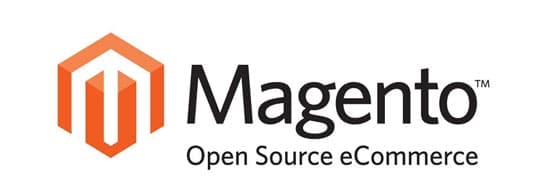Article Note: This article “12 of the Best Free Open-Source eCommerce Platforms for 2019-2020” was first published on 11th September 2019. We have last updated this article on 28th November 2019 with fresh information.
So, you want to sell online. No matter whether you are a retailer of physical products or have a service for sale, you are in need of an eCommerce solution. The decision now is what type of platform do you use. The basic choice here is between open-source, free eCommerce platforms (for example WooCommerce), or one which involves the payment of a monthly fee (such as Shopify). These two eCommerce platforms are two of the most well-known in each category, but the truth is, like everything else on the internet, there are loads of options. But the first major decision is whether to go open-source or not.
The advantages of using an open-source (free) eCommerce platform

There are numerous plus points when it comes to going with an open-source platform, and these mostly apply whether you are an SME or a large, established company. Those advantages can be listed as follows:
They are free
 Okay, so this one is obvious, but particularly for startups, the cost is one of the most restrictive elements when it comes to taking any major business decision. Granted, services such as Shopify are available for as little as $9 per month, but that still represents a saving over the long-run. Monthly fees soon stack up, as every small business owner recognizes.
Okay, so this one is obvious, but particularly for startups, the cost is one of the most restrictive elements when it comes to taking any major business decision. Granted, services such as Shopify are available for as little as $9 per month, but that still represents a saving over the long-run. Monthly fees soon stack up, as every small business owner recognizes.
More control
 This is a major factor for many who choose to go with an open-source platform over a more conventional off-the-shelf solution. Quite simply, with open-source you have more control over the design and look of your store, as well as how the e-store actually operates. For some small business operators, having the ability to customize is an important aspect of their company’s USP, so this would be an essential consideration. It all boils down to what you want to achieve, and how likely you are to be able to achieve it on your own.
This is a major factor for many who choose to go with an open-source platform over a more conventional off-the-shelf solution. Quite simply, with open-source you have more control over the design and look of your store, as well as how the e-store actually operates. For some small business operators, having the ability to customize is an important aspect of their company’s USP, so this would be an essential consideration. It all boils down to what you want to achieve, and how likely you are to be able to achieve it on your own.
There is a second point that is valid here too. You will also possess more control over important considerations such as the hosting provider that you use (and this, of course, relates to issues of compatibility), as well as the plugin features that you wish to avail of (there is a huge variety of options here, with more being added seemingly continuously). You also have rather more control over themes, which can help you customize the eCommerce framework seamlessly into your existing site with its exiting themes.
More unique features
 This is also a big selling point (albeit, for free) of open-source platforms. As these options are nearly constantly being updated, unique add-ons seem to be available all the time – certainly faster than with paid versions which can be rather slower with their updates. That’s logical of course, due to the varying restrictions on each type of platform, but the fact is that open-source eCommerce frameworks can often give the types of features that help set small business apart, and in a congested marketplace, that’s an important consideration and something that may ultimately sway you in your decision.
This is also a big selling point (albeit, for free) of open-source platforms. As these options are nearly constantly being updated, unique add-ons seem to be available all the time – certainly faster than with paid versions which can be rather slower with their updates. That’s logical of course, due to the varying restrictions on each type of platform, but the fact is that open-source eCommerce frameworks can often give the types of features that help set small business apart, and in a congested marketplace, that’s an important consideration and something that may ultimately sway you in your decision.
They are community supported
 Free open-source eCommerce platforms are community-built and operated so that immediately gives you access to a large community of developers and users who have already bred a culture of collaboration and information-sharing. That also manifests in the support you can access and the sheer weight of free advice you can make use of in order to achieve your objectives. It’s developer-friendly in the extreme.
Free open-source eCommerce platforms are community-built and operated so that immediately gives you access to a large community of developers and users who have already bred a culture of collaboration and information-sharing. That also manifests in the support you can access and the sheer weight of free advice you can make use of in order to achieve your objectives. It’s developer-friendly in the extreme.
Recommended for you: 5 Tips for Starting a Thriving WordPress eCommerce Site from Scratch.
The downsides of Free eCommerce Platforms

Cost
 This one is obvious and is the inverse of the cost-free argument of the eCommerce platforms. While some will see the amount that you have to pay (and the costs can vary widely) as trifling, otters certainly will not.
This one is obvious and is the inverse of the cost-free argument of the eCommerce platforms. While some will see the amount that you have to pay (and the costs can vary widely) as trifling, otters certainly will not.
They are not all-inclusive
 If you went with a paid platform such as Shopify, for example, you would be paying for hosting, the website-building function (should you require it), as well as all plugin options. In addition, you get marketing tools and even important analytical tools which can help you see how customers engage with the platform. Open-source platforms would require you go to separate locations for most of these; some of these functions may not be available at all.
If you went with a paid platform such as Shopify, for example, you would be paying for hosting, the website-building function (should you require it), as well as all plugin options. In addition, you get marketing tools and even important analytical tools which can help you see how customers engage with the platform. Open-source platforms would require you go to separate locations for most of these; some of these functions may not be available at all.
Technical expertise
 This is a cruncher for many: do you have the technical capabilities to develop and code your opensource framework so it is compatible with your existing site? Of course, you could always engage a developer to do it for you, but that’s more expense, right? And this all takes time, which is the same thing as money. And then there is no guarantee that the end product will be what you want it to be. Because you’ve never done this before. Right again?
This is a cruncher for many: do you have the technical capabilities to develop and code your opensource framework so it is compatible with your existing site? Of course, you could always engage a developer to do it for you, but that’s more expense, right? And this all takes time, which is the same thing as money. And then there is no guarantee that the end product will be what you want it to be. Because you’ve never done this before. Right again?
Less user-friendly
 Following on from the last point, open-source can be a little less user-friendly, especially if you have very limited design expertise and experience. You also have to do everything yourself, including important issues such as site maintenance, optimization, and even security. That might not be a very appealing concept to many.
Following on from the last point, open-source can be a little less user-friendly, especially if you have very limited design expertise and experience. You also have to do everything yourself, including important issues such as site maintenance, optimization, and even security. That might not be a very appealing concept to many.
The best free open-source eCommerce platforms on the market

Right, so you have thought carefully about all the pros and cons and have decided that an open-source solution is right for you. Which platform do you then go with? There are a number of options, of course, each with slightly differing benefits. It will all boil down, ultimately, to exactly what you want to do and the level of community support that you need. But here is a run-through of some of the best options out there.
WooCommerce

WooCommerce is actually a plugin offered by WordPress, so you’ll need WordPress to host it (but this is also open-source). The great thing here is that WordPress is still one of the most popular tools for building a website. So, integrating WooCommerce is therefore easy for those businesses. WooCommerce connects to all major payment options such as PayPal, Stripe and Amazon Pay, for example. Pretty much all you need to do is add content, as everything else is so easy to achieve. It’s the most popular open-source eCommerce platform for a reason.
Jigoshop

Jigoshop is often compared to WooCommerce, and for good reason: it’s easy to set up and use for a start. Scaling up easily is another definite advantage with Jigoshop. It may appear a little basic for some users, but that would equally be an attraction to others. So, it’s definitely a great choice for beginners.
You may like: How to Make your eCommerce Startup Stand out in the Crowd?
WP eCommerce

Did you even know WordPress had an alternative to WooCommerce? Well, it does, and you can transform your WordPress dashboard into a fully functional eCommerce dashboard with its download. It also offers nearly all of the same WordPress benefits too, so it’s worth checking out as an alternative.
Drupal Commerce

Drupal’s option is incredibly popular – perhaps only bettered by WooCommerce in terms of numbers of users. As Drupal is a competitor of WordPress, its eCommerce option builds on top of the original hosting and website-building service. This is therefore attractive from an integration perspective for those who already use Drupal. However, bear in mind that this is one for the developers out there, mainly, as that is what Drupal had in mind when setting it up.
Know more about Drupal Commerce
Square

Square offers a full-scale business ecosystem, and its integrations support eCommerce websites as well as physical businesses such as restaurants. Offering payment solutions, of course, you also get inventory management, sales, marketing, and team-collaboration functions. It’s fully-inclusive, free of course, and you don’t need to perform any coding (great!) Square offers a full online store solution, with plenty of simple design options too. This will help you customize as preferable.
nopCommerce

Free and open-source nopCommerce platform can be compared with the high-priced paid platforms in its functionality. You can upload an unlimited number of products, use multi-vendor and multi-store functionality. The platform supports multi-currencies and multi-languages, offers marketing and business analytics tools. There are integrations with all popular shipping and payment services and automatic tax calculation. nopCommerce is an easily scalable solution that will grow up with your business without charging any fees.
X-Cart

A growing open-source eCommerce platform, X-Cart is self-hosted and has an array of features that can be somewhat overwhelming. Support functions offer multilingual and multicurrency options, and it’s fully integrable with most of the major payment providers. It is, however, perhaps better suited to those who can easily code their integrations. It may not appeal to everyone, but the options here are impressive.
Zen Cart

Now this one really wasn’t built for developer pros, and that was indeed the platform’s premise. Very little coding is required at all with Zen Cart, which is a real attraction to many. It’s incredibly user-friendly, therefore, and will allow a quick scale-up of business if needed. It’s also secure and offers great community support.
Magento

Another popular option, Magento has perhaps the widest list of features of all open-source eCommerce platforms. This is certainly attractive for activities such as marketing and creating unique payment plans. It gives you almost total control of the design of the site; you can set up the functionality as you see fit. Total control with Magento.
OpenCart

OpenCart is a streamlined option and is therefore reasonably user-friendly. The community is large enough to offer decent advice in times of need too, and it pretty customizable. Plugins outside of the ones provided are not usually necessary. The general ease and cost-effectiveness of setting up OpenCart make it a good option for startups.
You may also like: How to Launch Your eCommerce Brand Quickly & Successfully? – 5 Rules to Follow!
PrestaShop

A relative newbie on the open-source eCommerce scene. PrestaShop is nonetheless quickly turning heads with its dual attraction of ease of use and great user interface. Try the free demo before you take the plunge to see what PrestaShop can do for you.
osCommerce

A great online community backs up osCommerce; this means there is great access to a full range of useful plugins (some of which will cost). You can also add some pretty advanced functions here; you can highly customize your site to the benefit of your customers and your business.
This article is written by us in association with Ashley Halsey. Ashley is a professional writer, marketing, management, and recruitment expert. She can be found contributing her business insights at Lucky Assignments, where she has established her reputation as an erudite and intelligent observer of marketing trends.





